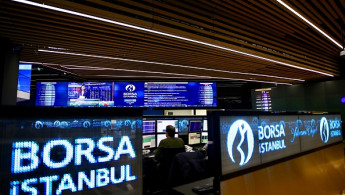Turkey's bond and bank rout deepens after Erdogan's strong election showing
Turkey's government and corporate bonds and banking stocks saw a second day of selling on Tuesday amid investor expectations that President Recep Tayyip Erdogan will be able to extend his rule - and his unorthodox economic policies - into a third decade.
The cost of insuring exposure to Turkish debt also rose further after Erdogan performed much better than expected in Sunday's presidential race, falling just short of the 50% threshold needed to win outright. He and his main opposition rival, Kemal Kilicdaroglu, now face a runoff vote on May 28.
"Markets are now reacting to the fact that we're probably going to get a return to the previous administration and a continuity of the policies that have made Turkey almost un-investable as far as western fund managers are concerned," said Jon Harrison, managing director of emerging market macro strategy at TS Lombard.
Ahead of the elections, opinion polls had suggested Kilicdaroglu would be the winner, and investors expected him to scrap some of Erdogan's economic policies, including costly efforts to prop up the lira currency.
On Tuesday the lira, which analysts say has become increasingly managed by the Turkish authorities over the last year, was little changed at 19.70 to the dollar but was still close to its 19.80 low for the year.
In-depth: In the shadow of February's earthquake, the 14 May elections see the governing AKP pitted against the opposition on issues such as governance and the economy, amid widespread anti-Syrian refugee rhetoric
— The New Arab (@The_NewArab) May 9, 2023
✍️ @AlessandraBajec https://t.co/BsCFZCYYwH
Longer-dated, dollar-denominated government bonds saw the biggest falls in fixed income markets, although key corporate and banking sector bonds also edged lower.
The government's 2045-maturing bond dropped 1.5 cents to trade at just under 73 cents in the dollar. That was the lowest level since late February, Tradeweb data showed, and added to falls of more than 7 cents on Monday.
Five-year credit default swaps, which indicate the price of insuring government debt against default, climbed to 652 basis points, up 18 bps from Monday's close and 160 bps above Friday's pre-election level.
"Turkiye’s inconclusive presidential election extends political and economic policy uncertainty at least until the run-off vote," credit ratings agency Fitch said, using the Turkish name for the country.
"In terms of the pressure on Turkiye’s ‘B’/Negative sovereign rating, our focus after the election will be whether the policy mix becomes more credible and consistent."
Banking stocks, which had surged in the week ahead of the election on hopes of a policy change, tumbled another 8% to take their losses since the election to nearly 20%.
However, the overall Istanbul bourse, which had notched a 6.1% fall on Monday, its largest daily percentage drop since early February, regained its footing.
(Reuters)





 Follow the Middle East's top stories in English at The New Arab on Google News
Follow the Middle East's top stories in English at The New Arab on Google News


